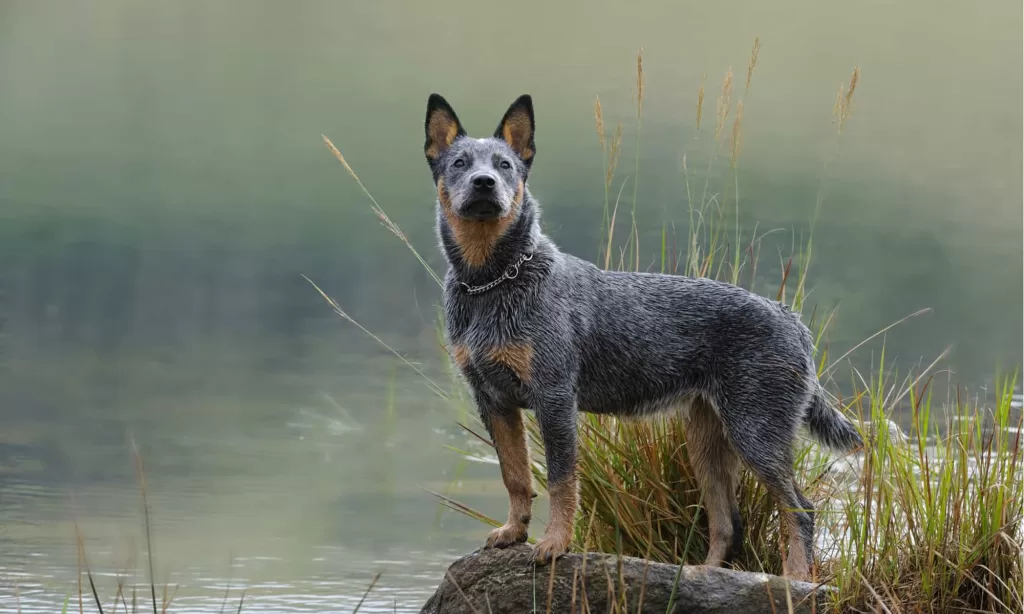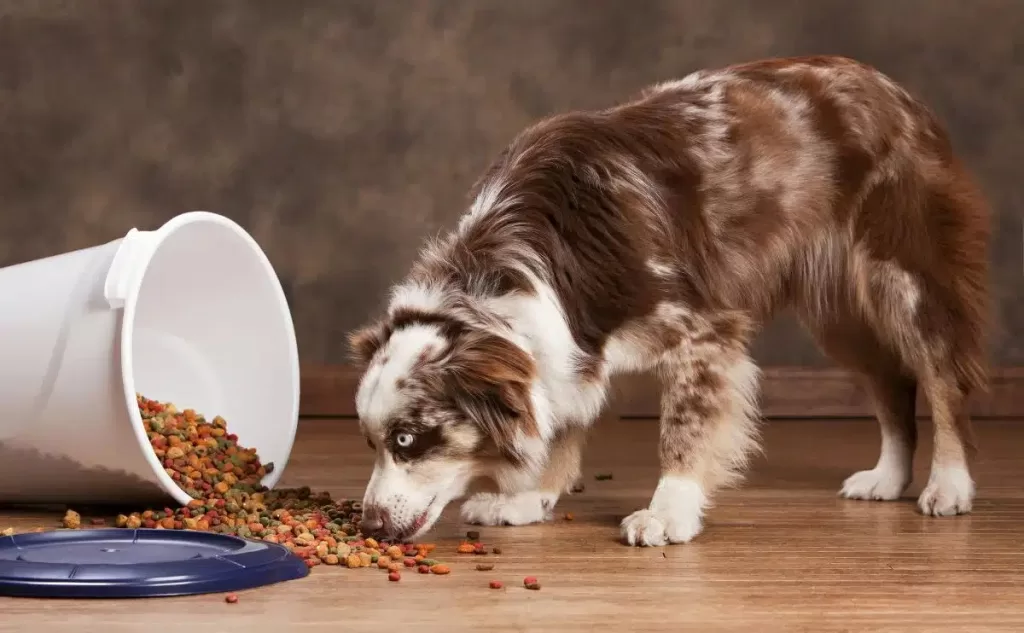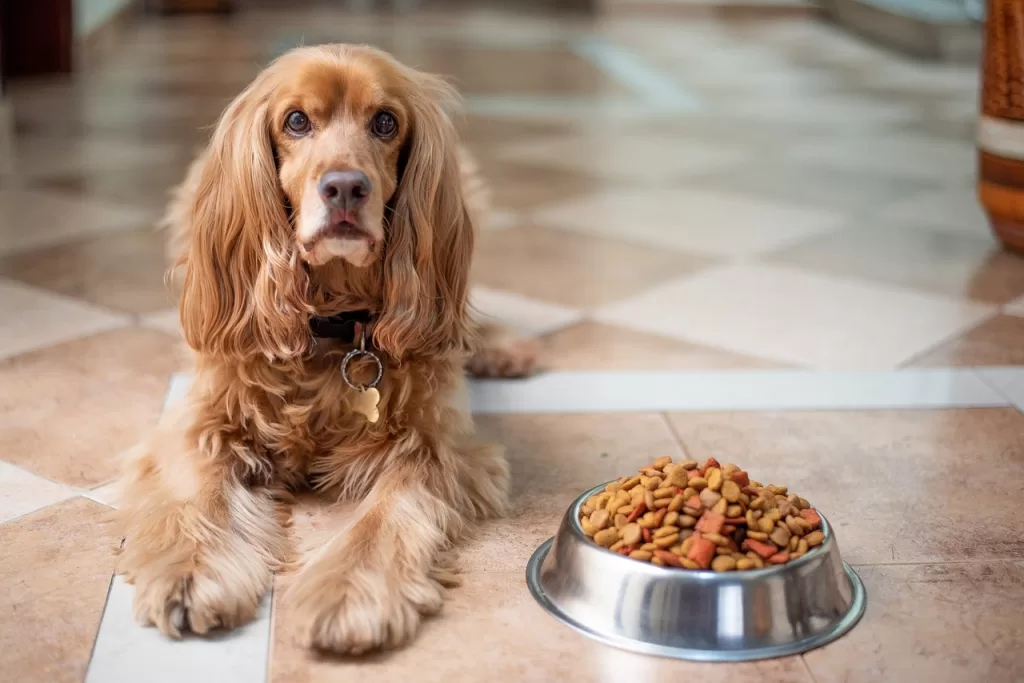How to Choose Foods for Australian Cattle Dog? Welcoming an Australian Cattle Dog into your family is a rewarding experience. As a responsible pet owner, providing the best nutrition for your furry companion is crucial to ensure their overall well-being and longevity. However, with the abundance of dog food options available, it can be overwhelming to select the right one. This article aims to guide you on how to choose the perfect foods for your Australian Cattle Dog, catering to their specific nutritional needs and preferences.
How to Choose Foods for Australian Cattle Dog
[toc]

Understanding the Australian Cattle Dog’s Dietary Needs:
Why Nutrition Matters for Australian Cattle Dogs:
Proper nutrition plays a vital role in the health and happiness of your Australian Cattle Dog. A well-balanced diet is essential for maintaining a healthy weight, supporting strong muscles and bones, promoting a shiny coat, and providing ample energy for their active lifestyle.
Nutritional Requirements for Optimal Health:
Australian Cattle Dogs are known for their high energy levels, intelligence, and agility. To meet their unique requirements, their diet should consist of high-quality proteins, healthy fats, and a balanced combination of carbohydrates, vitamins, and minerals.
Choosing the Right Type of Dog Food:
The Importance of High-Quality Protein:
Protein is the foundation of a dog’s diet. Look for dog foods with animal-based proteins like chicken, beef, or fish, as they provide essential amino acids necessary for muscle development and repair.
Balancing Fats and Carbohydrates:
Fats are a concentrated source of energy and are vital for maintaining healthy skin and coat. Carbohydrates, on the other hand, provide a quick source of energy. Finding the right balance between the two is essential for your dog’s overall health.
Essential Vitamins and Minerals:
Ensure that the dog food you choose is enriched with essential vitamins and minerals. These nutrients support various bodily functions and help maintain a strong immune system.
Raw vs. Commercial Dog Food:
Pros and Cons of Raw Diets:
Raw diets consist of uncooked meat, bones, fruits, and vegetables. While some proponents claim numerous health benefits, it’s essential to be aware of potential risks and challenges associated with raw feeding.
Pros and Cons of Commercial Dog Food:
Commercial dog food offers convenience and a wide range of options tailored to specific dietary needs. However, not all commercial brands are created equal, so it’s crucial to choose reputable and high-quality products.

Reading Dog Food Labels:
Identifying High-Quality Ingredients:
Learn to read and understand dog food labels. Look for products that list real meat as the primary ingredient and avoid those with fillers or artificial additives.
Avoiding Harmful Additives:
Certain additives and preservatives can be harmful to your dog‘s health. Opt for natural or organic dog food options whenever possible.
Catering to Special Dietary Needs:
Food Allergies and Sensitivities:
Some Australian Cattle Dogs may have food allergies or sensitivities. If you notice any adverse reactions after feeding, consult your veterinarian to identify potential allergens.
Dietary Considerations for Senior Dogs:
As your Australian Cattle Dog ages, their nutritional requirements may change. Consider switching to senior-specific formulas to support their changing needs.
Establishing a Feeding Schedule:
Determining the Right Portion Size:
Maintain your dog’s ideal weight by following feeding guidelines provided on the dog food packaging or consulting your veterinarian for personalized recommendations.
Frequency of Feeding:
Australian Cattle Dogs typically thrive on two meals per day. However, the feeding frequency may vary based on age, activity level, and individual preferences.
Providing Fresh Water Always:
The Importance of Hydration:
Ensure your dog has access to fresh, clean water at all times. Hydration is essential, especially for active dogs like the Australian Cattle Dog.
Treats and Snacks for Australian Cattle Dogs:
Healthy and Safe Treat Options:
Treats are a fantastic way to reward your furry friend. Opt for healthy treats made with natural ingredients, and be mindful of the portion sizes to avoid excessive calorie intake.
Homemade Dog Food Recipes:
Precautions and Tips for Homemade Meals:
Preparing homemade dog food can be rewarding, but it requires careful planning to ensure it meets all of your dog’s nutritional needs.
Sample Homemade Dog Food Recipes:
Here are two simple homemade dog food recipes to try for your Australian Cattle Dog.
- Chicken and Rice Delight:
- Ingredients:
- 2 cups of cooked chicken (shredded)
- 1 cup of cooked brown rice
- 1/2 cup of cooked carrots (diced)
- 1/2 cup of cooked green beans (chopped)
- 1 tablespoon of olive oil
- Instructions:
- Mix all the ingredients together in a bowl.
- Serve after cooling to room temperature.
- Ingredients:
- Salmon Surprise:
- Ingredients:
- 2 cups of cooked salmon (flaked)
- 1 cup of cooked quinoa
- 1/2 cup of cooked sweet potatoes (mashed)
- 1/2 cup of cooked peas
- 1 tablespoon of coconut oil
- Instructions:
- Combine all the ingredients in a bowl.
- Let it cool before serving.
- Ingredients:
Supplements for Australian Cattle Dogs:
Understanding When Supplements Are Necessary:
Supplements can be beneficial for addressing specific health concerns or filling nutritional gaps. Consult your veterinarian before adding any supplements to your dog’s diet.
Commonly Recommended Supplements:
Omega-3 fatty acids, glucosamine, and probiotics are common supplements that can support your dog’s joint health, coat condition, and digestion.
Avoiding Harmful Foods:
Foods That Are Toxic to Dogs:
Certain human foods can be harmful or even toxic to dogs. It’s crucial to keep these items away from your Australian Cattle Dog’s reach:
- Chocolate: Chocolate contains theobromine and caffeine, which can lead to vomiting, diarrhea, increased heart rate, and even seizures in dogs.
- Grapes and Raisins: Grapes and raisins can cause kidney failure in dogs, leading to severe health issues.
- Onions and Garlic: These can damage a dog’s red blood cells and cause anemia, particularly in large quantities.
- Avocado: Avocado contains persin, which can be toxic to dogs and cause gastrointestinal issues.
- Xylitol: Found in many sugar-free products, xylitol is highly toxic to dogs and can lead to low blood sugar levels and liver failure.
- Alcohol: Even small amounts of alcohol can be dangerous for dogs, affecting their coordination, breathing, and overall health.
Consulting a Veterinarian or Nutritionist:
When it comes to your Australian Cattle Dog’s diet, professional guidance can be invaluable. Your veterinarian or a qualified pet nutritionist can help tailor a nutrition plan that suits your dog’s individual needs, taking into account their age, activity level, health conditions, and personal preferences.
Conclusion:
Choosing the right foods for your Australian Cattle Dog is a crucial responsibility that directly impacts their overall health and well-being. A well-balanced diet, rich in high-quality proteins, healthy fats, and essential nutrients, will ensure your furry friend enjoys a long, active, and happy life. Whether you opt for commercial dog food, raw diets, or homemade meals, always prioritize your dog’s nutritional needs and consult a professional when in doubt.
Remember to provide fresh water at all times, offer healthy treats in moderation, and avoid feeding your dog any harmful foods. By making informed decisions and being attentive to their dietary requirements, you’ll foster a strong and loving bond with your Australian Cattle Dog that lasts a lifetime.
FAQs:
How often should I feed my Australian Cattle Dog?
Most Australian Cattle Dogs thrive on two meals per day, but individual needs may vary. Consult your veterinarian for personalized feeding recommendations.
Are homemade dog food recipes safe for my dog?
Homemade dog food can be safe and nutritious when properly balanced. Ensure it meets all your dog’s nutritional requirements and consult a veterinarian or pet nutritionist for guidance.
Can I give my Australian Cattle Dog table scraps as treats?
Some human foods are harmful to dogs, so it’s best to avoid giving table scraps. Instead, opt for safe and healthy dog treats.
Is it necessary to add supplements to my dog’s diet?
Supplements may be beneficial for specific health concerns, but it’s essential to consult your veterinarian before adding any supplements to your dog’s diet.
How can I tell if my Australian Cattle Dog has food allergies?
Signs of food allergies in dogs include itching, red or inflamed skin, ear infections, and digestive issues. If you suspect allergies, seek veterinary advice.
With this comprehensive guide, you are well-equipped to provide the best nutrition and care for your Australian Cattle Dog. Your furry companion will thank you with their boundless energy, wagging tail, and unwavering loyalty. Enjoy your journey with your beloved Australian Cattle Dog!



